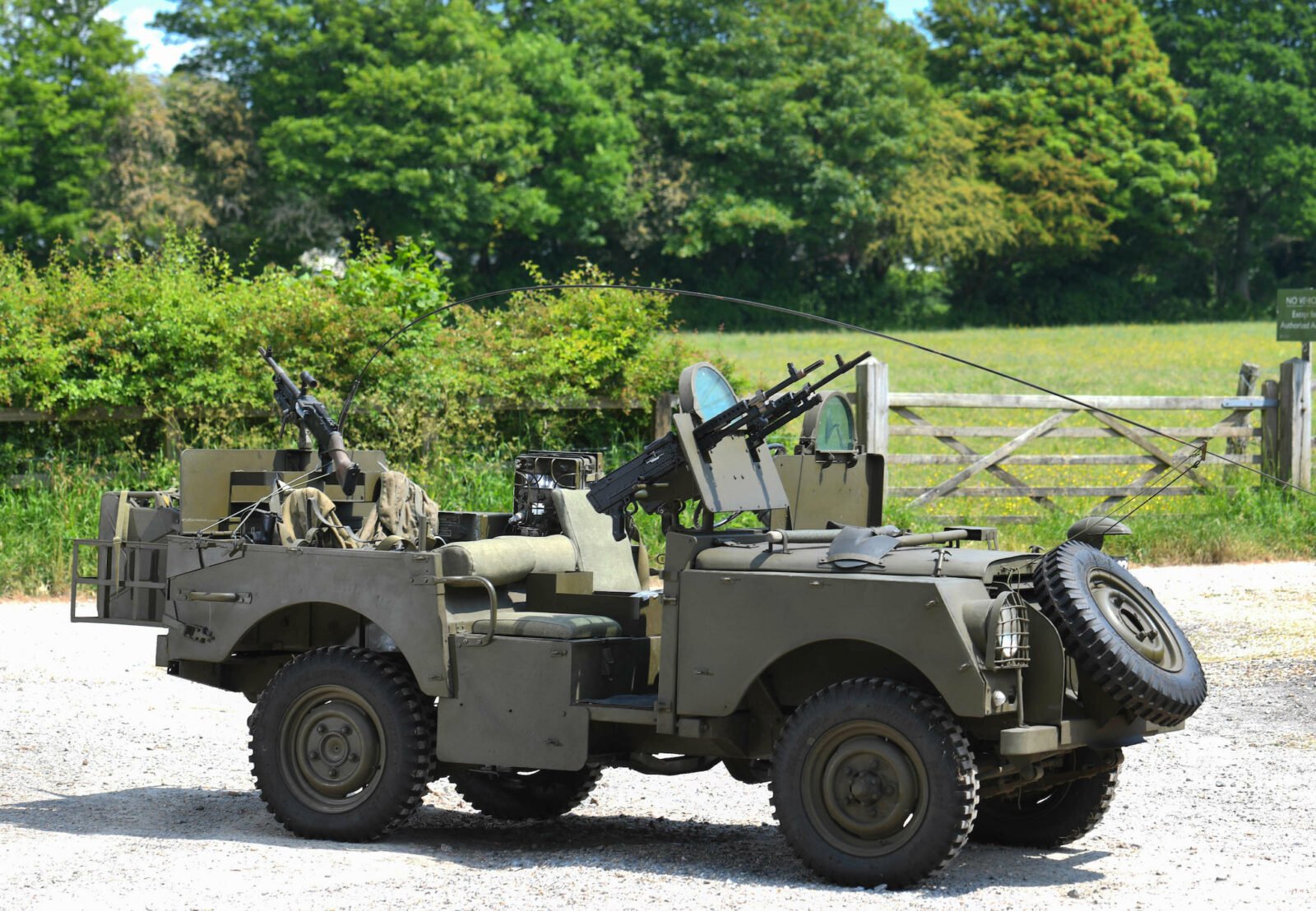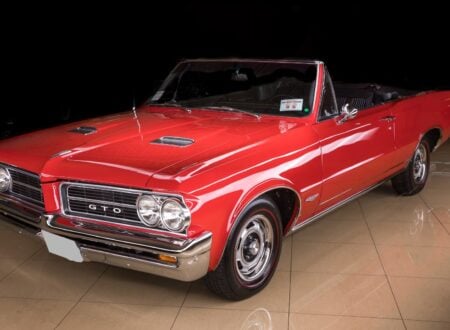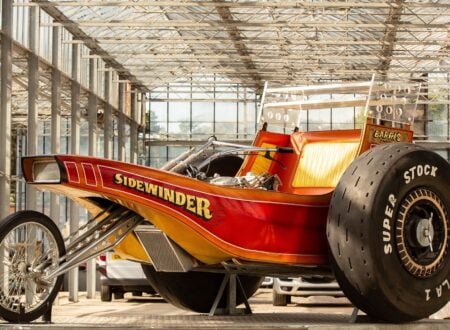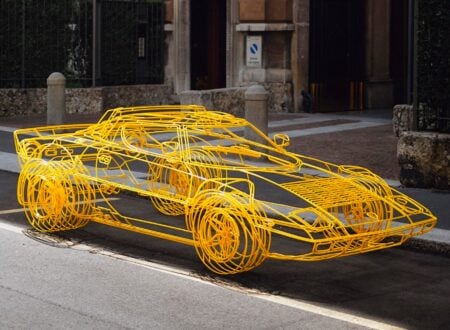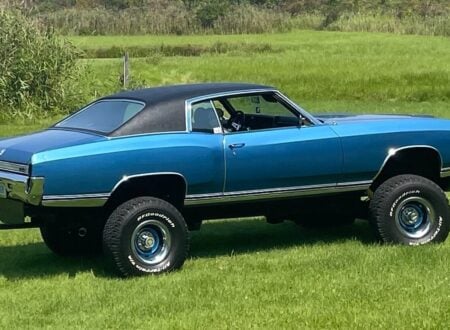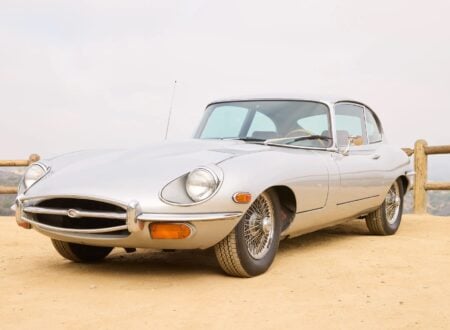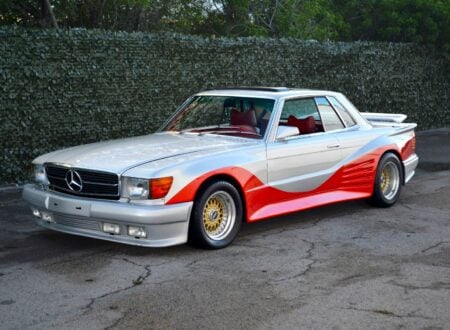This is a rare Minerva Series I “Blindé” parachute reconnaissance vehicle, it’s fitted with a bulletproof front end including 1/4 steel plating and bulletproof glass and it was used in period by Belgian special forces.
The Minerva Series I was built in Belgium from CKD (Completely Knocked Down) kits from Land Rover in England. It was based on the Land Rover Series I running gear and drivetrain, with a new steel body made in Belgium by Minerva.
Fast Facts – A Bulletproof Minerva Series I “Blindé”
- The Minerva company, based in Belgium, struck a deal with the Rover Company in 1951. This deal allowed Minerva to produce Land Rovers under license in their home country. The vehicles were to be largely similar to the UK-made Land Rovers, but with unique Belgian-made steel bodies.
- The Belgian armed forces used the Minerva Land Rover extensively. The military versions had specific modifications, such as pintle hooks for towing, blackout lighting, and provisions for fitting radios and other military equipment. This played a crucial role in bolstering Belgium’s post-war military vehicle fleet.
- Minerva produced the Land Rover under license for only a short period of time, from 1952 to 1956. In that period, they built around 10,000 vehicles. The end of the collaboration was reportedly due to multiple factors, including Rover’s decision to set up their own operations and sales network in Belgium.
- The Minerva Series I “Blindé” was a bullet proof/armored version of the Minerva Series I that featured bulletproof windscreens, a bulletproof radiator grille, and 1/4 steel armor plating. Only a few dozen were made, and very few have survived to the modern day.
Minerva And The Belgian Land Rover
Minerva was founded by Dutchman Sylvain de Jong in Antwerp, Belgium in the year 1900. The company initially made bicycles which were followed by simple motorcycles, and finally by automobiles starting in 1902.
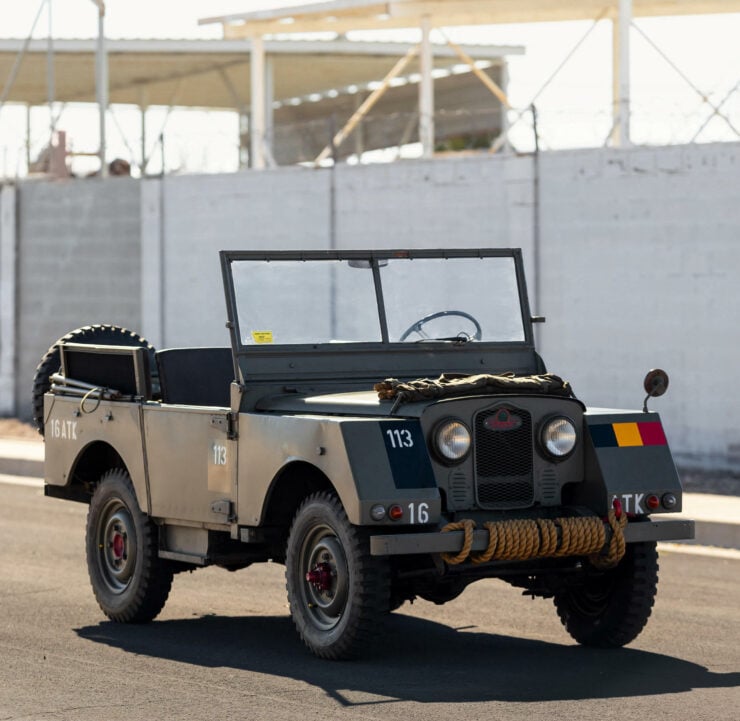

After WWII, Minerva sought out both Land Rover and Willys seeking a solution that would allow them to use pre-existing running gear and build simple military and agricultural 4x4s in Belgium. Land Rover ultimately won the contract, possibly due to the much closer proximity, and a deal was struck to sell Land Rover Series I vehicles as CKD (Completely Knocked Down) kits.
The Minerva factory in Belgium would assemble these kits, which included the ladder frame chassis, the engine and drivetrain, the suspension, brakes, and electrical systems. They would then build their own bodies from steel, interestingly they didn’t have the ability to stamp steel panels into more rounded shapes, and so the Minerva Series I is made up of all flat panels.
The Minerva Series I remained in production from 1953 until 1958, at the height of production the factory was producing 50 vehicles a day, which for a time made them the most prolific producer of Land Rover-based vehicles in the world outside of England.
As the popularity of Land Rover continued to expand through the 1950s the company began to look at expanding into Belgium themselves. Minerva has a number of disputed with Land Rover at around this time and litigation was filed. Minerva would win the case, but they went bankrupt shortly thereafter.
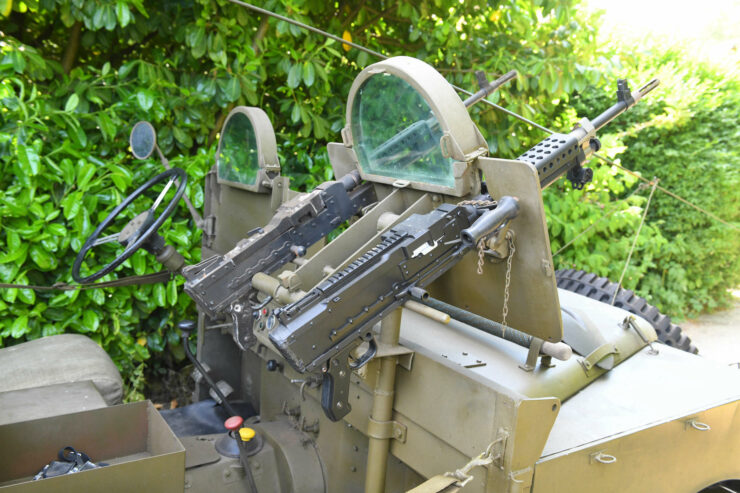

In total, 8,959 CKD vehicles were sent from Rover to Socièté Nouvelle Minerva SA of Belgium and today only a few hundred are thought to have survived. They’re now sought after by collectors as they represent an interesting and little-known part of Land Rover history.
The Minerva Series I “Blindé” Shown Here
During production of the Minerva Series I it was determined that an armored, or bulletproof, version of the vehicle should be developed for use by Belgian special forces – specifically for the parachute reconnaissance unit of the Belgian Army.
The armoring of the vehicle wasn’t up to a standard that would be common today of course, essentially just the front of the vehicle was armored with 1/4 inch steel plate, a small bulletproof windscreen, an armored radiator grille, and some additional armor plating. So long as you were facing your enemy head-on then it wouldn’t be an issue…
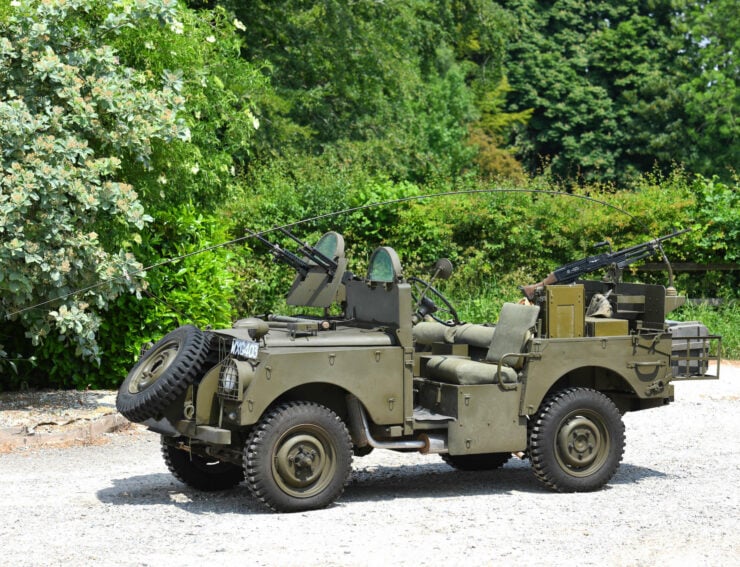

These vehicles were also equipped with dual front-mounted machine guns, a single rear mounted machine gun, a bazooka, and a radio with a wrap-around antenna. They were finished in matte army green and typically carried a front-mounted spare tire, and a rear cargo rack for jerry cans and other supplies.
The examples you see here was converted for the Belgian military in around 1955 into a Blindé Parachute Reconnaissance Vehicle, blindé being the French word for armored.
It’s not known exactly how many vehicles were converted into Blindé specification, the numbers vary between 36 and 60, however very few are known to remain today as many were destroyed or abandoned in the Belgian Congo in the 1960s.
Interestingly, this vehicle was restored in 2010 by a former member of the Belgian Parachute Regiment, who had experience of using them during his time in the service.
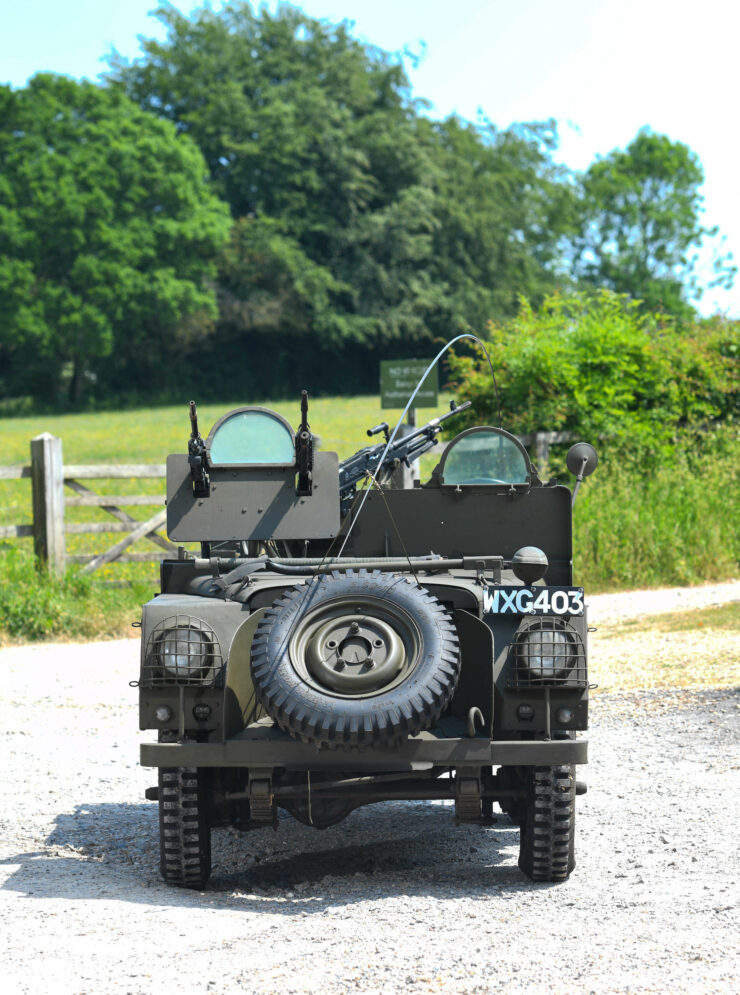

It has since been displayed at a number of Land Rover shows and it’s won numerous awards. It also took part in a military convoy arranged to commemorate the 75th anniversary of the D Day landings.
It’s now described as being in generally excellent condition and offered with a UK V5C registration document. It’s due to cross the auction block with Bonhams on the 9th of September at their Goodwood Revival Auction, with a price guide of £20,000 – £25,000 or approximately $25,400 – $31,700 USD. If you’d like to read more about it or register to bid you can visit the listing here.
*Editor’s Note: We missed the schedule on this post due to an error, it sold over the weekend for £25,300 just over the upper end of the price estimate.
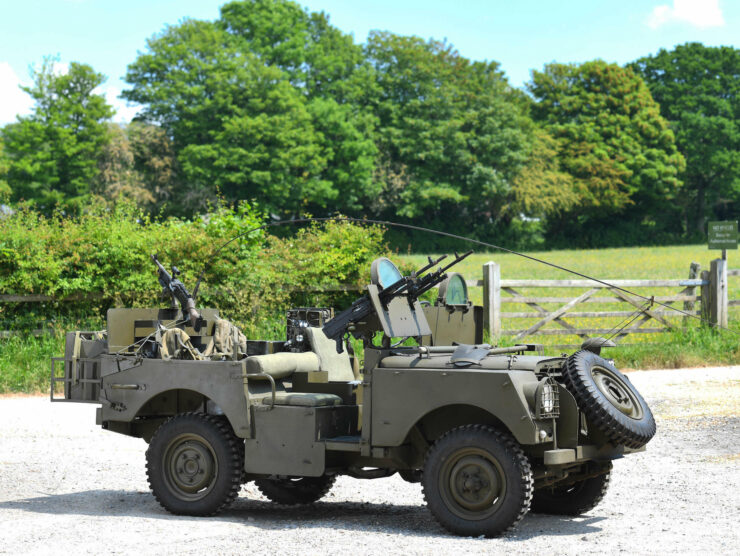
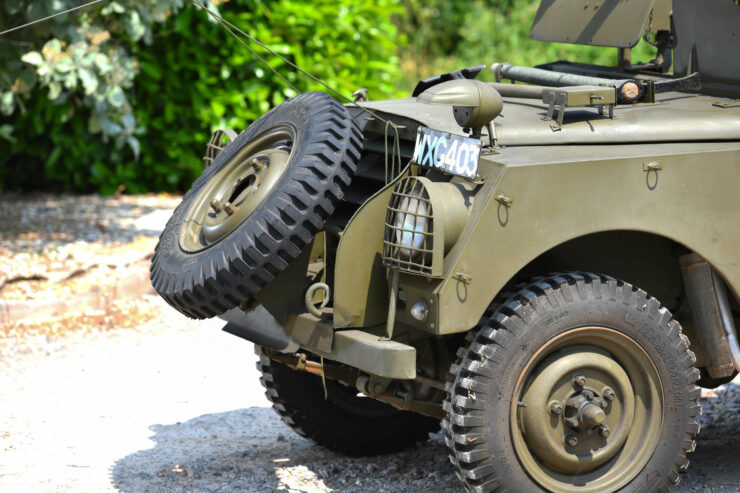
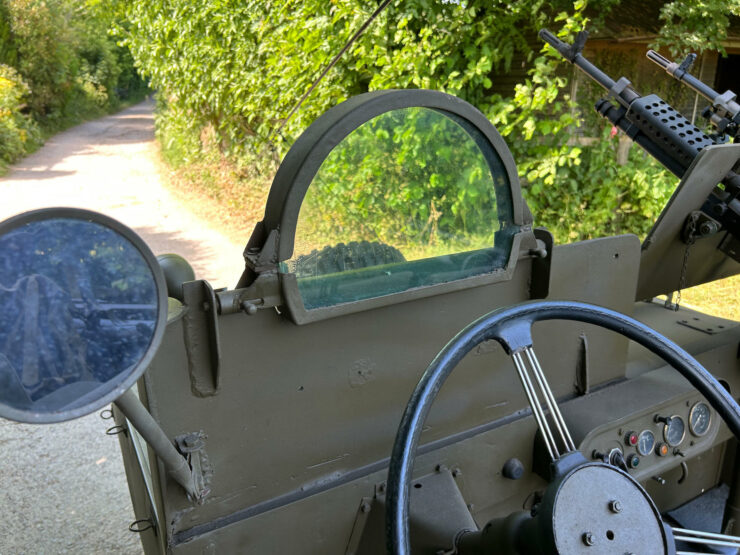
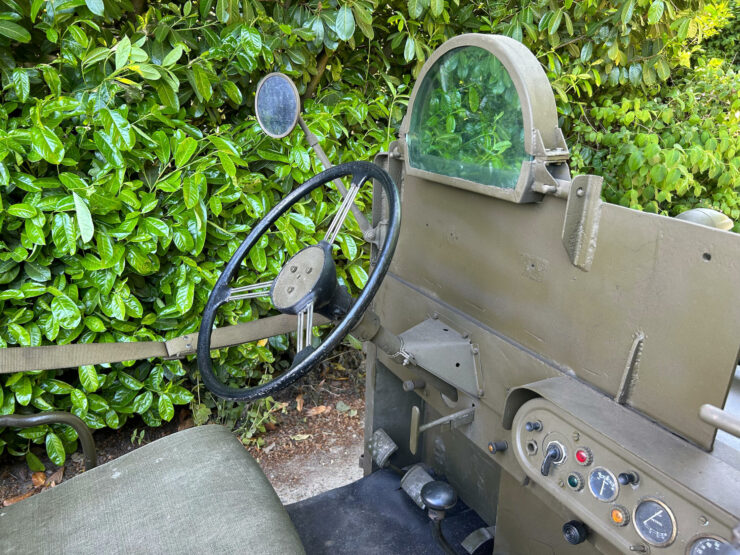
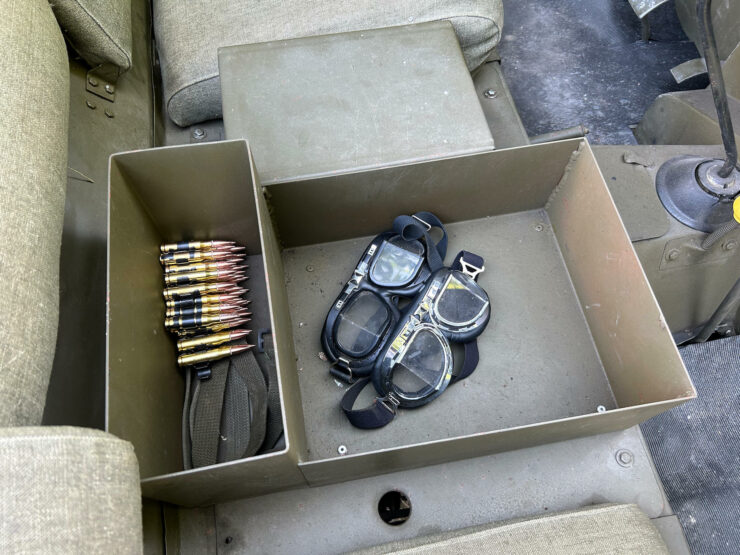
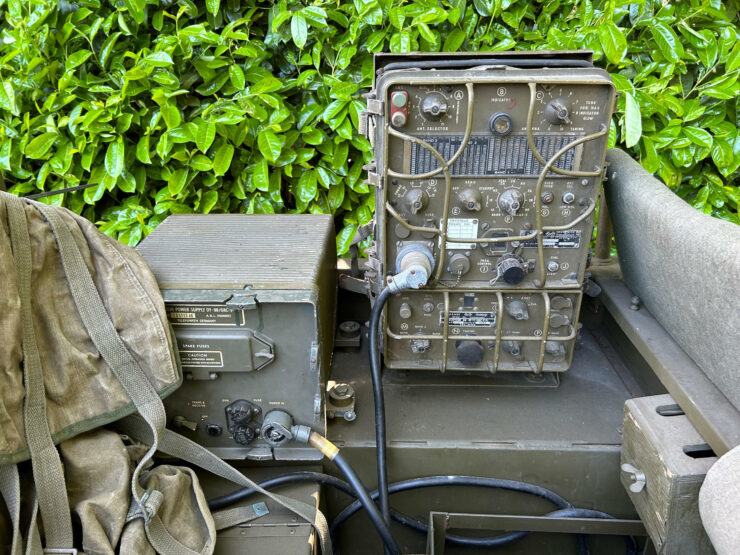
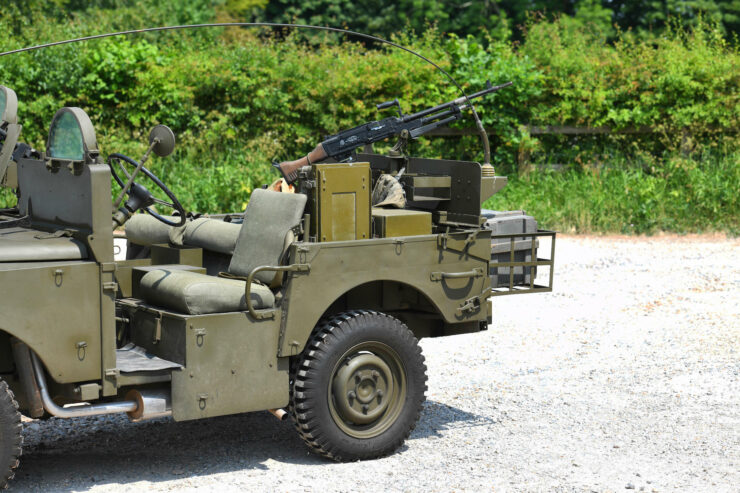
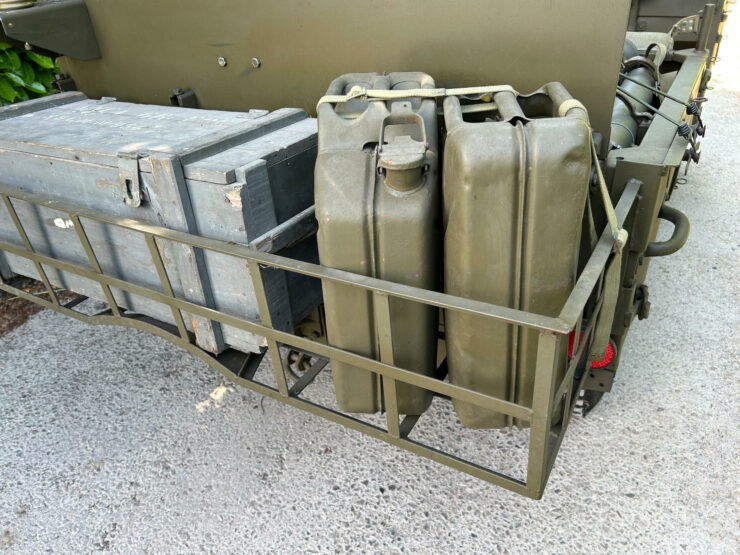
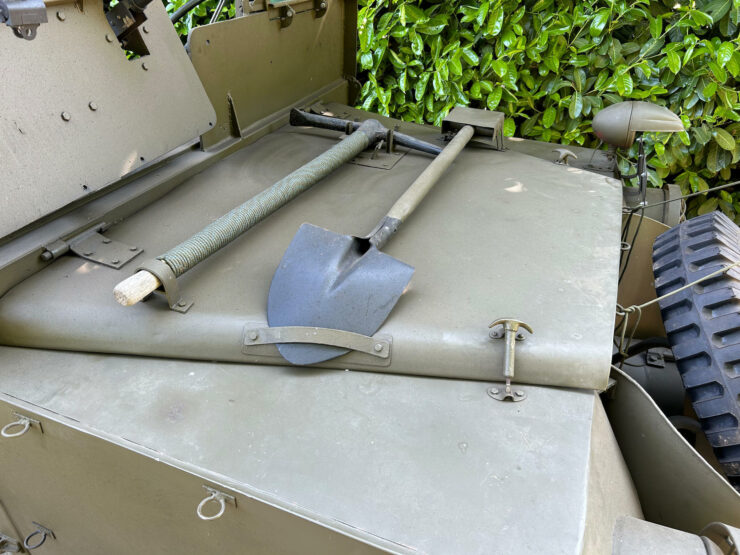

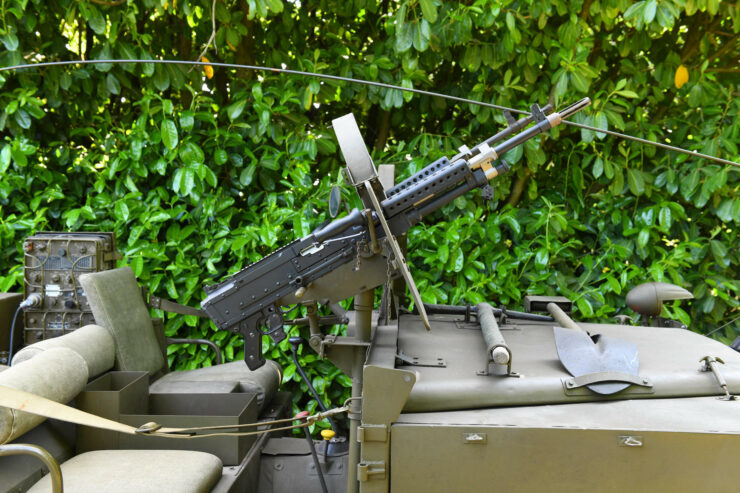
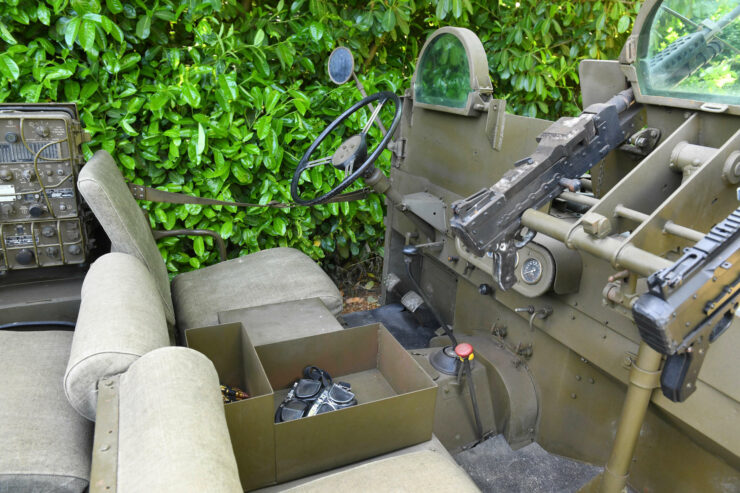
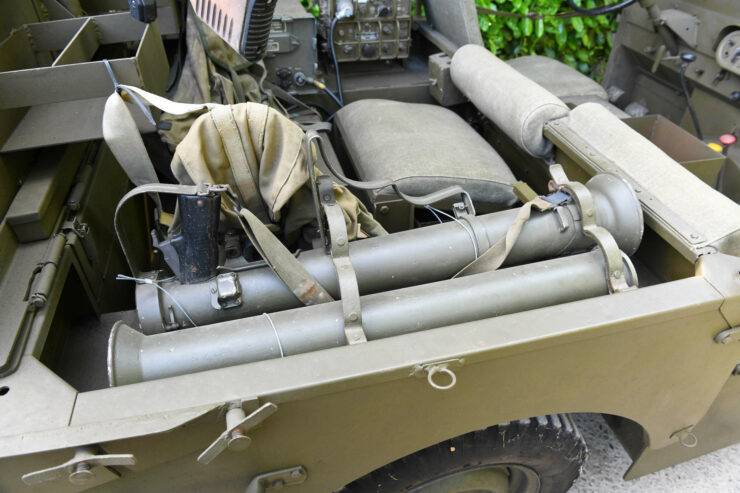
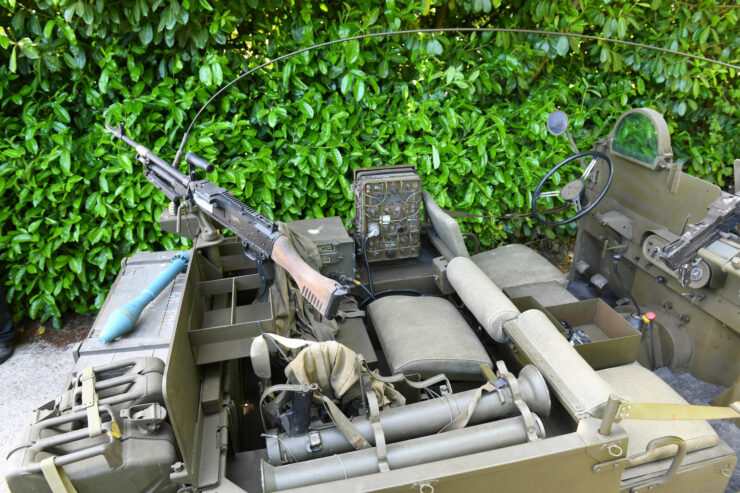
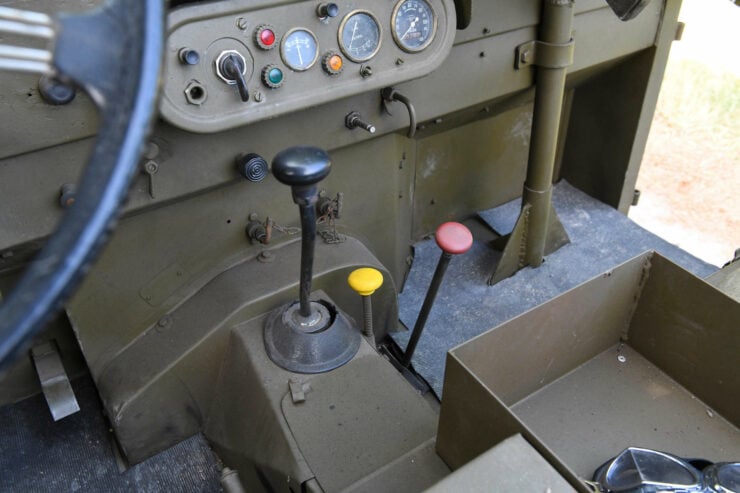
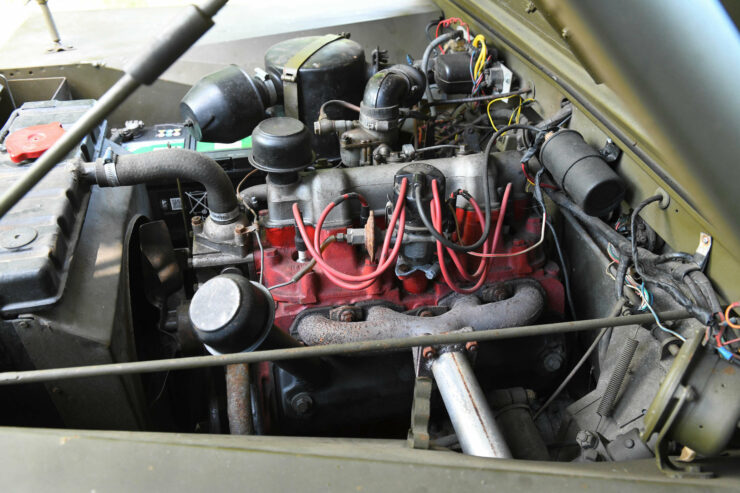
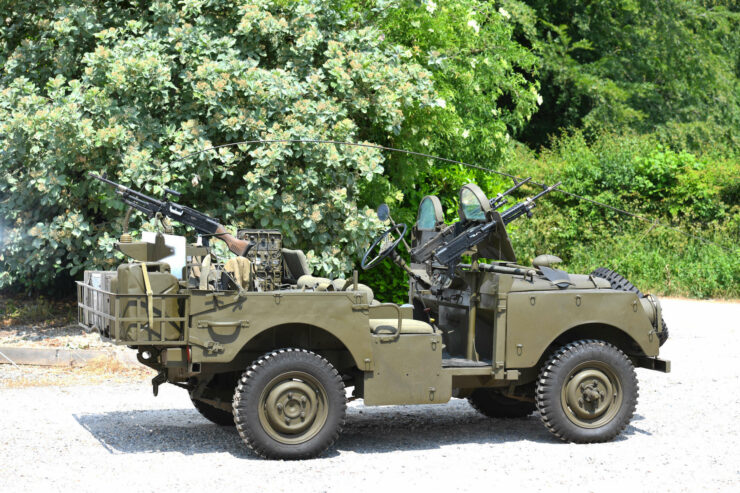
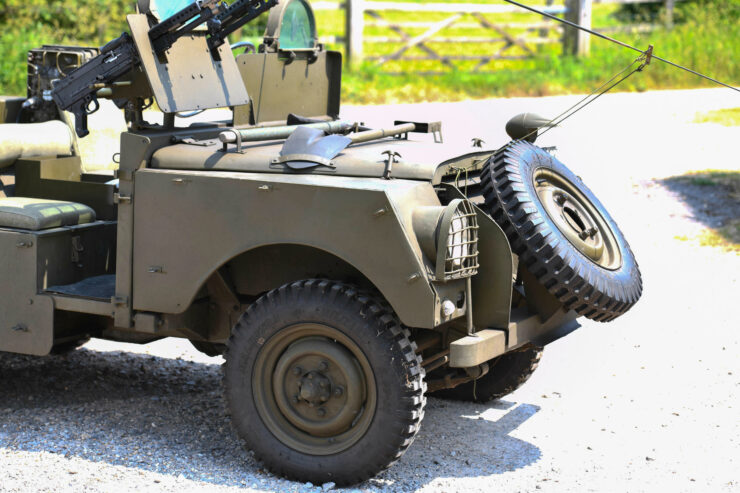
Images courtesy of Bonhams

